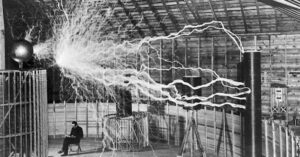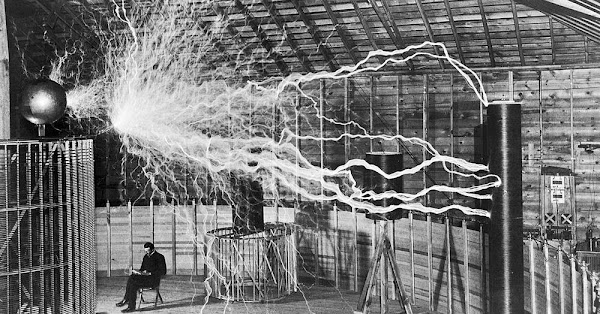My Research
Researching job insecurity perceptions
What am I researching? Well, I am investigating, how technological automation within the office environment can either make your job feel more or less secure.
In other words
How would I feel if tasks or sets of tasks were automated by a computer, would I feel that my job is secure?
Would I feel that my job is secure if lots of the things I did during my working week were to be done by a computer?
To ask the big question, Is my Job safe?
What am I talking about? And why am I interested?
Many of us have witnessed technology change the way we do things. Technology within the office environment has changed, got smaller, faster, and more capable of completing a multitude of different tasks.
Technology has been in the workplace for over 40 years, with the introduction of the desktop computer through to today’s laptops and tablets that can complete multiple tasks all on the same device
Social technology has not been far behind, with Myspace, Facebook, Telegram Instagram all enabling communications in different ways
Workplace technological automation (computers) can and has been a very emotive subject, with some saying that technology can threaten or even result in job loss, whereas others suggest that technology can make life easier.
I would like to make a distinction here, If you talk (and I have through the years) about technology within the workplace many will think of the production line. The robots producing cars, the technologies that cut and package the foods, or the Amazon automated systems that pick and package the products we ordered last night.
These are not the technologies I am researching, and although they are very interesting, many researchers have examined how these can impact workers, companies, and the economies of countries.
In my research, I am investigating how we feel as employees when we are told that a computer system will automatically complete some of the tasks we would normally do either on a daily, weekly or monthly basis.
Would we feel that our job is at risk, or would that feeling of job risk or job insecurity increase over time as more tasks were completed by a computer?
But both sides of the debate (Computers are good / Computers are bad) agree that technology is here to stay and that the working environment will continue to change because of them.
However, although the debate is now over 40 years old and still going strong, how an individual may feel about a computer (for or against) could be dependent on how threatened they feel within their job by the introduction of computer systems within the office environment.
So, why did I become interested in technological automation, job security, job insecurity, Change management and people’s perceptions relating to the relationship between them?
The short answer to this question is, I grew up on science fiction in books, comics films and TV series, and always saw computers systems completing things we could not do (and in some cases things we do not want to do) quicker and more accurately
Science Fiction has a habit of becoming Science Fact, and seeing that the many things that have been written about, have become and are becoming science fact.
For example,
It could be considered that H.G Wells (1866 – 1946) foretold in the book ‘Men Like Gods’ (1923) of wireless voicemail and email communication systems. At the same time, it could also be considered that Mark Twain (1835 – 1910) suggested long-distance communications devices in his published short story entitled ‘From the London Times in 1904 (1898)
Tesla (1856 – 1943) who suggested that electricity could be distributed free and without wires, and this could be observed as the basis for WIFI, to mention just a few.

And well, one of the more famous, and has been made more famous by films are the three laws of robotics, and well Robots as those envisaged and described are becoming reality.
Many of the technological advances, from the internet, social media, video conferencing, electronic typewriters, and touchscreens, could be considered as being predicted long before the technologies were available or even conceived.
Automation has many facets, including robotic production lines, automated vehicles, the use of analytic software (Google Analytics), Powerpoint, and Computer-Aided Design (CAD-CAM), to name but a few of an ever-growing list.
Over my 30-year career, I have managed many digital projects that have changed the way companies and employees interact and communicate with each other, and the organisation they are retained by.
So when investigating subjects that would be of interest during my MSc, I ran across a statement by John Maynard Keynes that suggested that technology could facilitate jobs and job types becoming obsolete, but would also mean that new jobs would be created because of those technologies.
This reasoned with me, as I have seen jobs become obsolete, but I have seen many others including my own now be created because of technologies and technological automation.
But doing my MSc I noticed something, A gap if you will

No one from my understanding had investigated the feelings or perceptions people may have about their own job security, when new technological automation, is introduced within the workplace, that replaces tasks or sets of tasks they performed.
Research had and has investigated technology and job insecurity, and investigated how secure people felt, but never at the task level.
Academics have always examined the part that computers can play as a source of job insecurity either through robotics or at the generalised level within the office environment.
Researching job insecurity perceptions, or could technological automation make employees’ jobs easier, or harder, will technological automation replace the job in its entirety, or just some of the job aspects, like the tasks performed, prospects for promotion or another unknown aspect?

And this is where my interest lies, the perception employees have about the introduction of new technology or computer automation. Does it make them feel uncertain or scare them? Do they have concerns new technology will make them redundant or change their working environment or prospects or job aspects?
These perceptions and feelings could make or break the acceptance and success of any new technology, or computer automation that is introduced within the working environment, and this is where my career has focused.
This simple fact is not often considered when introducing new technological automation, into the office environment, and if incorrectly managed could have wide-ranging impacts on both the organisation and the employees
This study could be seen as important, as employee perception can give rise to changes in motivation and information exchanges, affecting organisational capabilities and innovation, in other words, the organisations’ employees are the most important resource they have the knowledge and the experience.
Latest Articles
Many of these articles will be covering interesting subjects connected with my research, or news or social media that could be considered as impacting the world of work.
https://researchingjobperceptions.com/researching-job-…ons-the-articles/


